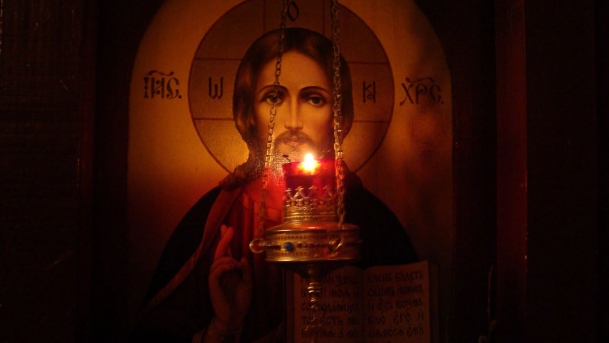Generally our people pray little, but with much humility. Can they hope for salvation through their small quantity of prayer? And how should the sick or those who can’t read pray?
Our Savior Jesus Christ said: When you pray, do not use vain repetition like the gentiles, for they think they will be heard for their much speaking. Do not be like them; for your Father knows what you need before you ask Him (Matt. 6:7-8). Then He taught us the ‘’Our Father.’’ Therefore, our Savior Himself taught us brief prayer. Anyone who says short prayers, but with humility and tender feeling, will be saved. Let us remember the holy elder who prayed for forty years with the same prayer: “Lord, I as a man have sinned; do Thou as God forgive me.”
– How can people fulfill the Apostle Paul’s command, “Pray without ceasing?”
Anyone can pray without ceasing if he always walks before God with his mind and heart. He can work with his hands while his mind and heart are raised to God. The only thing I have to add is that the most important thing in spiritual prayer is that our mind and heart are inseparable from God, regardless of what time and place we are in. We must always be aware of the presence of God. “This work applies to all kinds of prayer, and is considered an uninterrupted prayer,” says St. Theophan the Recluse. This is the feeling and spiritual contemplation of God that the blessed Prophet David had when he said: “I beheld the Lord always before me, for He is at my right hand, that I might not be shaken…” (Ps. 15:8). So we must understand that a faithful man’s life is a ceaseless prayer if his mind is always with God.
– When we do good works, is that also a kind of prayer to God?
Yes, it is. The Apostle Paul tells us this when he says: Whatsoever ye do in word or deed, do all in the name of the Lord Jesus, giving thanks to God and the Father by Him (Col. 3:17). Whenever one does a good deed for the glory of God, or speaks for the benefit of others for the glory of God, he has the prayer of works. Therefore St. Theodore the Studite, counselling his disciples, said to them: “He who does good deeds and obeys with humility and without protest, performs liturgy and priesthood”.
Source: text extracted from “Ne vorbește Părintele Cleopa”


Put your comment